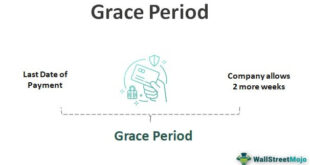Understanding Credit Card Statements: Your Financial Health Credit cards are a significant part of modern financial life, offering convenience and flexibility in spending. However, understanding credit card statements is crucial for effective financial management. In this guide, we’ll break down everything you need to know about your credit card statements, helping you make the most of your credit.
What is a Credit Card Statement?
A credit card statement is a monthly summary of your credit card account activity. It includes important information such as your balance, transactions, interest rates, fees, and payment due dates. Familiarizing yourself with these details can help you manage your spending, avoid unnecessary fees, and improve your credit score.
Key Components of a Credit Card Statement
- Account Information: Your name, account number, and billing address.
- Statement Period: The dates that the statement covers.
- Due Date: The date by which you must make your payment to avoid late fees.
- Minimum Payment Due: The least amount you need to pay to keep your account in good standing.
- Total Balance: The total amount you owe, including purchases, interest, and fees.
- Transaction Details: A list of all transactions made during the statement period, including date, merchant, and amount.
- Interest Rates: Information about the annual percentage rate (APR) and any promotional rates.
- Fees: Details about any fees incurred, such as late fees or over-the-limit fees.
Understanding Charges and Payments
Purchases
When you use your credit card for purchases, the total amount is added to your balance. Keeping track of your spending can help you avoid accumulating debt.
Payments
Making payments on time is vital. If you only pay the minimum amount due, you’ll incur interest on the remaining balance, which can lead to debt accumulation.
Interest Rates Explained
Credit cards typically have varying interest rates, known as APR. Understanding how these rates work can help you minimize interest charges:
- Standard APR: The regular interest rate applied to your balance.
- Introductory APR: A temporary lower rate offered for new accounts or balance transfers.
Importance of Timely Payments
Paying your bill on time is crucial for maintaining a good credit score. Late payments can lead to penalties, increased interest rates, and a negative impact on your credit history.
Tips for Managing Your Credit Card Statement
- Review Your Statement Regularly: Check for any unauthorized transactions.
- Create a Budget: Plan your spending to avoid overspending.
- Set Up Alerts: Use your bank’s alerts to remind you of payment due dates.
- Automate Payments: Consider setting up automatic payments to ensure timely payments.
- Pay More Than the Minimum: Whenever possible, pay more than the minimum to reduce your balance faster.
- Utilize Rewards Wisely: Understand how your rewards program works and use it to your advantage.
- Know Your Rights: Familiarize yourself with your rights regarding disputes or errors on your statement.
- Check for Errors: Report any discrepancies to your credit card issuer immediately.
- Monitor Your Credit Score: Regularly check your credit report for accuracy.
- Educate Yourself: Learn about financial literacy to make informed decisions.
Frequently Asked Questions
- What should I do if I find an error on my statement?
- Contact your credit card issuer immediately to dispute the charge.
- How can I avoid paying interest on my credit card?
- Pay your balance in full by the due date each month.
- What happens if I miss a payment?
- You may incur late fees and your interest rate may increase.
- Can I negotiate my interest rate?
- Yes, many credit card companies are willing to negotiate interest rates.
- How do I know if my account is in good standing?
- Your statement will indicate if your account is current and if there are any late payments.
- Is it bad to have a high credit utilization ratio?
- Yes, a high utilization ratio can negatively impact your credit score.
- What is a grace period?
- A grace period is the time between the end of your billing cycle and your payment due date.
- How do I cancel my credit card?
- Contact your issuer to request cancellation and ensure your balance is paid.
- What are foreign transaction fees?
- Fees charged for transactions made in a foreign currency or processed outside your home country.
- Can I get my statement online?
- Yes, most credit card companies offer online access to your statements.
Conclusion
Understanding your credit card statement is essential for maintaining financial health. By knowing the key components of your statement and taking proactive steps to manage your credit card usage, you can avoid costly mistakes and build a strong credit profile.
In summary, regularly reviewing your credit card statements empowers you to take control of your financial situation. By implementing the tips provided and staying informed about your credit, you can navigate the complexities of credit card management with confidence.
 Gerbang Finance
Gerbang Finance

